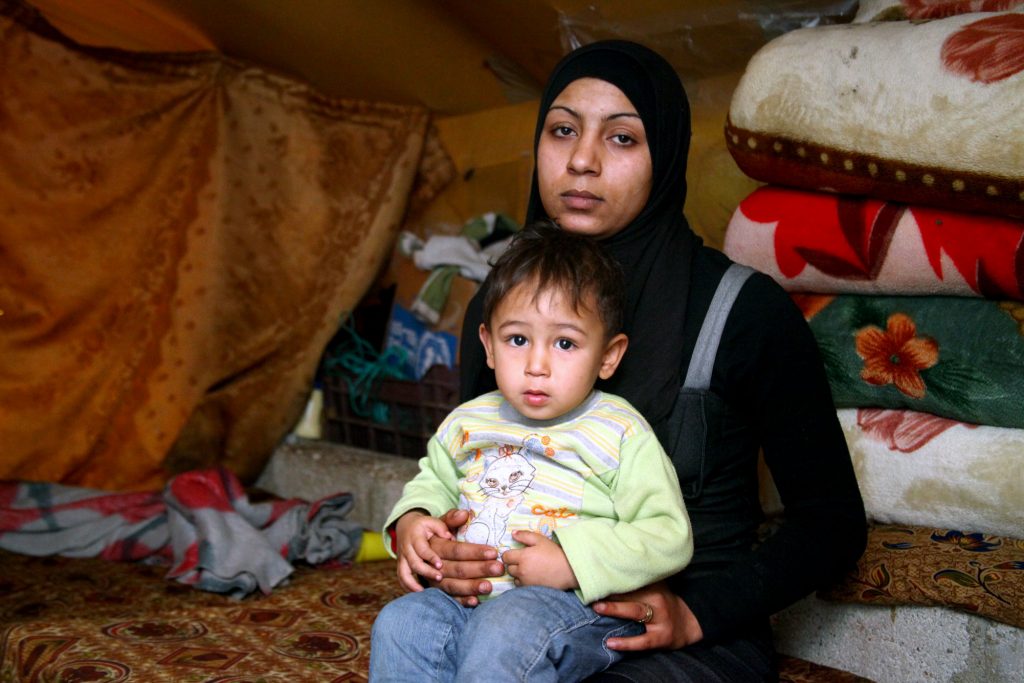
This article is part of the Strife Series on Women and Children’s Health in Conflict. Read the Series Introduction at this link.
Over two million Palestinians in the Gaza Strip live in degrading conditions of poverty, food insecurity, and high unemployment. In June 2007, Israel imposed a land, sea, and air blockade on the Gaza Strip, and since 2008, Israeli military forces have mounted several operations against the Strip. Years of blockage compounded by military interventions have led to ruinous consequences on the healthcare system. While reports by health organizations and media outlets focus disproportionately on the numbers of casualties, deaths, and long-term disabilities, much less attention is paid to the conflict’s impact on maternal and reproductive health services.
Since the start of the blockage, the healthcare system in the Gaza Strip has been suffering from a significant shortage of essential services, with maternal and child healthcare services being affected the worst. Mothers and their babies are often discharged early (within 2-3 hours) due to the limited capacity and high demands for healthcare facilities. The quality of maternal services is also compromised due to the high number of deliveries and increasing rates of caesarean section, which further increase the burden on healthcare workers in the field. While the total fertility rate has declined in the occupied Palestinian Territory, it is still one of the highest in the region. At any given time, there are about 45,000 pregnant women in the Gaza Strip.
The large number of pregnancies in Gaza can be attributed to the uneven and relatively poor access to family planning services. Indeed, women in lower socioeconomic brackets who live in remote and disadvantaged regions are less likely to benefit from them. The unmet need for family planning increases the number of unwanted pregnancies, and therefore, increases the risk of unsafe abortions and maternal complications. According to a family health survey in 2010, high unmet needs for family planning was associated with 30% of unwanted pregnancies. In 2019, two out of the five essential family planning methods (male condoms and progesterone-only pills) have been at zero stock level (available for less than a month) at the United Nations Relief and Works Agency (UNRWA) and Ministry of Health (MoH) clinics in the Gaza Strip.
Maternal pharmaceuticals have also been affected by the blockade. For example, iron (a drug used to treat anaemia) and folic acid (a drug used to prevent a certain type of congenital defects) have been severely limited. In 2018, according to the MoH in Gaza, nearly 40% of pregnant women were anaemic. Although several organisations have supported the provision of life-saving maternal health drugs, 70% of essential maternal and child health drugs remain at zero stock in the MoH. In a mapping study done by the United Nations International Children’s Emergency Fund (UNICEF), all assessed primary healthcare (PHC) facilities reported that essential pharmaceuticals and life-saving drugs were either unavailable or had been experiencing interrupted supply for the last six months. These include iron, folic acid, antibiotics, and methyldopa (a drug used to treat high blood pressure during pregnancy).
Year on year, maternal and reproductive health in Gaza becomes increasingly concerning. A 2019 situation report by the World Health Organisation (WHO) showed that maternal deaths increased by 122% between 2017-2018 (from 8.6 to 19.1 per 100,000 live births), and of these, 63% occurred before childbirth. Several factors can be attributed to this increase. One of these is poor PHC. PHC staff have limited training, and according to the UNICEF report, preconception care (care before the pregnancy) guidelines were not available at any of the assessed PHC centres. The same report also showed that all the interviewed pregnant women were not aware of danger signs during pregnancy.
There is no doubt that the decline in healthcare standards is more significant during and following major military operations: women become unable to access maternal and reproductive healthcare services, and medical resources become incredibly scarce. In July 2014, the Gaza Strip experienced a 51-day military operation (Protective Edge) by the Israeli military, one of four major military operations since 2009. Nearly the entire population in Gaza was involved in the conflict and was affected by the concurrent destruction of infrastructure. The impact of Protective Edge on women specifically was huge. The UN-Human Rights Council (UNHRC) reported that 299 women were killed and 3,540 others were injured. The UN Office for the Coordination of Humanitarian Affairs (OCHA) reported that over 40,000 pregnant women were unable to access essential maternal healthcare, and accordingly, the neonatal mortality rate doubled from 7% to 14%.
The inability to access healthcare services can be attributed to two main factors. First, many healthcare facilities were damaged, and the remainder were overwhelmed. During the crisis, only 50% of PHC centres were operating, leading to a significant decline in accessing family planning services. Moreover, 17 hospitals were put out of action, and six maternity wards were closed. The high number of casualties meant some remaining wards (including maternity units) were adapted into surgical wards. Thus, women were subject to low levels of care and were discharged early after delivery, resulting in a massive deterioration of their health.
Secondly, there was a near lack of capacity and preparedness to respond to the needs of internally displaced persons (IDPs). OCHA reported that half a million people (28% of the population) were internally displaced in schools and informal shelters which were not equipped to provide maternal and reproductive health services. Throughout the military operation, women who needed these services were instead referred to outside facilities during a time when transportation was severely restricted and highly dangerous even to ambulances. Furthermore, pregnant and lactating women had reduced access to special dietary support and vitamin supplements. The overcrowded shelters, where multiple families had to stay in the same room, were particularly challenging for women due to the lack of privacy and female hygiene products.
In addition to the effect of the blockade and the repetitive military operations on providing essential healthcare services for women, the Great March of Return (GMR) also had significant impacts. The GMR, which catalysed on March 30th 2018, sought to end the Israeli’s illegal blockade on the Gaza Strip. In doing so, however, it has added extra pressure on the already overwhelmed healthcare system. The massive influx of casualties led to the suspension of elective surgeries and the reallocation of hospital beds to serve the injured patients.
About six months after the start of the GMR, the US Trump administration decided to cut off the American financial assistance to the UNRWA. UNRWA plays a vital role in the Gaza Strip’s health sector, delivering free PHC services through 22 facilities. UNRWA clinics serve about 70% of the Palestinian population in the Gaza Strip, providing them with essential antenatal and postnatal healthcare services. In 2018, 39,709 pregnant women attended PHC facilities at the UNRWA. This reflects the tremendous effect of the withdrawal of US financial support on the quality of maternal and reproductive health services in the Gaza Strip.
Maternal and reproductive health in the Gaza Strip is on the edge of the abyss. There is an urgent and immediate need to ease the blockade and improve maternal healthcare infrastructure, both by opening new facilities and increasing medical staff’s capacity. A holistic emergency plan, which prioritises womens’ needs and rights, is indispensable and should be adopted. Every woman has the right to receive full and high-quality maternal and reproductive health services, even during emergencies. Good womens’ healthcare is critical to maintaining a healthy life for every Palestinian in the Gaza Strip. The Palestinian society will not be safe unless Palestinian women are safe.



